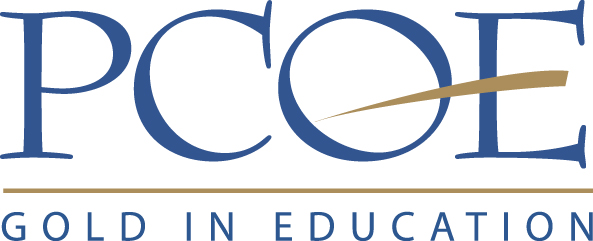|
Empty
Welcome
Visitor
Browse Courses
Sort by:
Default
11815
The PCOE State and Federal Programs Network meets monthly following the CDE State and Federal Directors meeting. We provide current and accurate information for program directors responsible for oversight of federal categorical programs and state requirements. Meetings include pertinent and timely information on topics related to categorical needs, programs, compliance, and other related items. In addition, the meetings provide an opportunity to meet and share ideas with people who have similar responsibilities within other Local Educational Agencies (LEAs).
See attached flyer. More  Starts:
8/27/2025
8:30 AM
Starts:
8/27/2025
8:30 AM
 Ends:
6/25/2026
10:30 AM
Ends:
6/25/2026
10:30 AM
 Sessions:
8
Sessions:
8
 Duration:
302 days
2 hours
Duration:
302 days
2 hours
 Pricing:
Pricing:
 Location:
Location:
 Status:
13 open seats left
Status:
13 open seats left
11778
This network serves as a space for participants to collaborate on effective use of state assessments, including ELA/Math SBAC, Interims, ELPAC, and CAST. This network supports learning from peers, sharing best practices, and using assessment practices to enhance instructional strategies and monitor student progress.
See attached flyer. More  Starts:
9/5/2025
9:00 AM
Starts:
9/5/2025
9:00 AM
 Ends:
5/7/2026
11:00 AM
Ends:
5/7/2026
11:00 AM
 Sessions:
4
Sessions:
4
 Duration:
244 days
2 hours
Duration:
244 days
2 hours
 Pricing:
Pricing:
 Location:
Location:
 Status:
10 open seats left
Status:
10 open seats left
11821
Leading CTE Systems: Designing Pathways for All Learners is a hybrid professional learning network for administrators and systems leaders committed to expanding access to high-quality CTE pathways. Meeting monthly in person or virtually, participants will collaborate to identify barriers, share resources, and apply systems-level strategies to universally design career pathways aligned with workforce needs. This network offers a space to deepen learning, exchange ideas, and support the design of student-centered, future-ready programs.
Join us monthly from 11am-12pm either in person or via zoom.
More
 Starts:
9/11/2025
11:00 AM
Starts:
9/11/2025
11:00 AM
 Ends:
5/7/2026
12:00 PM
Ends:
5/7/2026
12:00 PM
 Sessions:
9
Sessions:
9
 Duration:
238 days
1 hour
Duration:
238 days
1 hour
 Pricing:
Pricing:
 Location:
Location:
 Status:
10 wait spaces available
Status:
10 wait spaces available
11777
This 9-session professional learning series, designed for Kindergarten through 2nd-grade teachers, will focus on accelerating early literacy development through evidence-based instructional practices. Meeting once a month for two hours from August through May, participants will engage with research-backed strategies to strengthen foundational reading skills.
The series will incorporate content from the Getting Reading Right® modules by the Los Angeles County Office of Education (LACOE) and evidence-based practices from the California Collaborative for Learning Acceleration (CCLA), led by the Santa Clara County Office of Education (SCCOE). Additionally, participants will receive a copy of 7 Mighty Moves by Lindsey Kemeny, which will serve as a key resource throughout the series. Assigned chapters will be read in advance to deepen discussions and application of high-impact literacy strategies. Through this collaborative learning experience, educators will gain practical tools to enhance early literacy instruction, strengthen assessment practices, and support all students in becoming confident, proficient readers. See attached flyer. More  Starts:
9/15/2025
3:15 PM
Starts:
9/15/2025
3:15 PM
 Ends:
5/11/2026
5:15 PM
Ends:
5/11/2026
5:15 PM
 Sessions:
9
Sessions:
9
 Duration:
238 days
2 hours
Duration:
238 days
2 hours
 Pricing:
Pricing:
 Location:
Location:
 Status:
6 open seats left
Status:
6 open seats left
11972
This professional development series supports early childhood educators working with children ages 0–5 in making the most of classroom interest areas such as the Block Area, Writing Center, Manipulatives, and more. Together, we will explore how to intentionally design and extend these spaces to promote foundational learning and support children’s growth across developmental domains.
Each session offers practical strategies and reflective tools to help educators deepen engagement, encourage exploration, and connect children's play to key early learning concepts. View our flyer here! More  Starts:
9/18/2025
6:00 PM
Starts:
9/18/2025
6:00 PM
 Ends:
3/19/2026
7:30 PM
Ends:
3/19/2026
7:30 PM
 Sessions:
6
Sessions:
6
 Duration:
182 days
1 hour
30 minutes
Duration:
182 days
1 hour
30 minutes
 Pricing:
Pricing:
 Location:
Location:
11814
Placer County Office of Education hosts quarterly Multilingual Learner Coordinator Network (MLCN) meetings. These meetings were formerly known as the English Learner Coordinators’ Network or ELCN. The MLCN provides local district educators who coordinate services for English learners and dual language programs with the opportunity to obtain relevant information about English learner issues, up to date guidance and a chance to brainstorm and network with other districts.
See attached flyer. More  Starts:
9/23/2025
9:00 AM
Starts:
9/23/2025
9:00 AM
 Ends:
5/13/2026
12:00 PM
Ends:
5/13/2026
12:00 PM
 Sessions:
4
Sessions:
4
 Duration:
232 days
3 hours
Duration:
232 days
3 hours
 Pricing:
Pricing:
 Location:
Location:
 Status:
1 open seat left
Status:
1 open seat left
11894
Father/Father-Figures play a critical role in their child's early literacy development through reading books with their children, engaging in conversation and sharing stories. Father/Father-Figures are invited to join us as we learn how we can support and engage children in early literacy development
More
 Starts:
9/30/2025
6:00 PM
Starts:
9/30/2025
6:00 PM
 Ends:
6/30/2026
6:30 PM
Ends:
6/30/2026
6:30 PM
 Sessions:
9
Sessions:
9
 Duration:
273 days
30 minutes
Duration:
273 days
30 minutes
 Pricing:
Pricing:
 Location:
Location:
 Status:
13 open seats left
Status:
13 open seats left
11890
Join us for a series of four supportive and flexible workdays designed to help district teams make meaningful progress on their Local Control and Accountability Plans (LCAP). Whether you're drafting content, reviewing data, aligning metrics, or seeking peer feedback, these sessions provide the space and guidance you need.
Our team will be available to support your work, answer questions, offer input, and help troubleshoot challenges—wherever you are in the LCAP process. Come with your materials, your questions, and your team. Leave with clarity, progress, and confidence. See attached flyer. More  Starts:
12/16/2025
9:00 AM
Starts:
12/16/2025
9:00 AM
 Ends:
3/20/2026
3:00 PM
Ends:
3/20/2026
3:00 PM
 Sessions:
4
Sessions:
4
 Duration:
94 days
6 hours
Duration:
94 days
6 hours
 Pricing:
Pricing:
 Location:
Location:
 Status:
17 open seats left
Status:
17 open seats left
12029
Explore Principals as Early Learning Leaders at your own pace in this online, asynchronous Canvas course. Discover strategies for supporting early learning, fostering collaboration, and creating thriving school environments for young children. Engage with the content on your own schedule and reflect on key insights for your leadership practice.
View our flyer here! More  Starts:
1/1/2026
12:00 AM
Starts:
1/1/2026
12:00 AM
 Ends:
6/30/2026
11:59 PM
Ends:
6/30/2026
11:59 PM
 Session:
Online
Session:
Online
 Pricing:
Pricing:
 Location:
Location:
 Status:
Closed
Status:
Closed
11973
Enhance your understanding of early childhood education through a self-paced, auditory learning experience designed for educators. This professional development series offers a deeper look into the foundational theories that shape high-quality early learning environments.
View our flyer here! More  Starts:
1/1/2026
12:00 AM
Starts:
1/1/2026
12:00 AM
 Ends:
5/31/2026
11:59 PM
Ends:
5/31/2026
11:59 PM
 Session:
Online
Session:
Online
 Pricing:
Pricing:
 Location:
Location:
 Status:
Closed
Status:
Closed
12033
Join our new Math Teaching and Learning Network, designed to support educators in strengthening math instruction, creating meaningful student-centered experiences, and collaboratively strengthening daily math instruction.
Why Join?
Strengthen daily math instruction through strategies that increase engagement, reasoning, and sense‑making.
Learn and apply universally designed practices that help all students access rigorous mathematics.
Build coherence across grade levels to support consistent, high‑quality instruction.
Empower educators as instructional leaders in their classrooms and sites.
Share and learn from community practices, highlighting what’s working in classrooms across the region.
Support one another by bringing challenges, questions and successes into a collaborative space.
More
 Starts:
1/13/2026
4:45 PM
Starts:
1/13/2026
4:45 PM
 Ends:
4/28/2026
5:45 PM
Ends:
4/28/2026
5:45 PM
 Sessions:
3
Sessions:
3
 Duration:
105 days
1 hour
Duration:
105 days
1 hour
 Pricing:
Pricing:
 Location:
Location:
 Status:
34 open seats left
Status:
34 open seats left
12024

Ready, Set, Go explores the foundations of Augmentative and Alternative Communication (AAC). Participants will discover the vital role of communication partners, learn evidence-based strategies for effective AAC implementation, and gain practical tools to plan, support, and enhance meaningful communication and participation for all learners.
Presented by the PCOE AAC/AT Team More  Starts:
2/27/2026
8:00 AM
Starts:
2/27/2026
8:00 AM
 Ends:
2/27/2026
3:30 PM
Ends:
2/27/2026
3:30 PM
 Session:
1
Session:
1
 Duration:
7 hours
30 minutes
Duration:
7 hours
30 minutes
 Pricing:
Pricing:
 Location:
Location:
 Status:
Closed
Status:
Closed
|
 PCOE Login
PCOE Login
